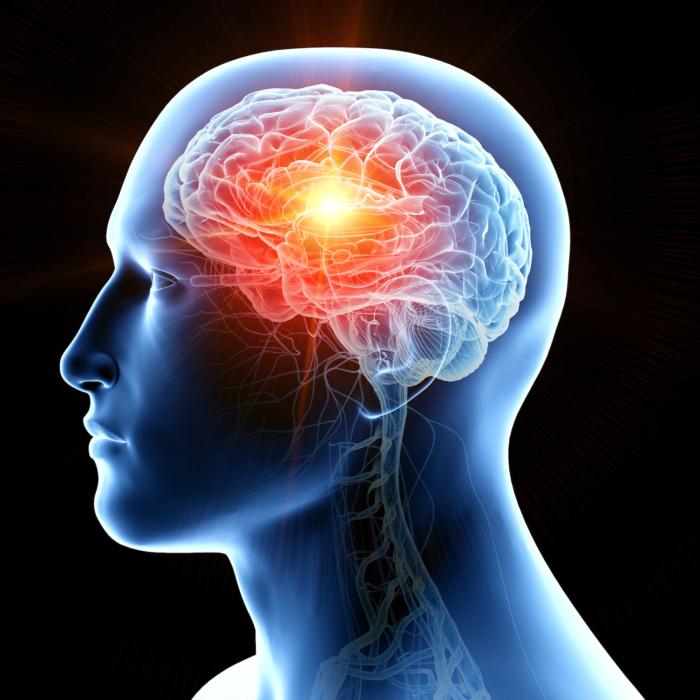Five cases of Alzheimer’s have been identified, which are believed to have arisen from medical treatment of children of short stature involving donor hormones harvested from cadavers—sometimes without the donor family’s knowledge or consent—decades earlier.
According to researchers at University College London (UCL) and its affiliated hospital, the findings may have important implications for understanding and treating Alzheimer’s—a neurodegenerative disease that usually starts slowly and progressively worsens and is the cause of 60—70 percent of cases of dementia.
The procedure (cadaver-derived human growth hormone or c-hGH) that led to this suspected transmission was stopped in the 1980s but scientists are recommending medical procedures should be reviewed to ensure such rare cases of Alzheimer’s transmission do not happen in the future.
There is no suggestion the protein (amyloid-beta) can be passed on in day-to-day life or during routine medical or social care.
Alzheimer’s is believed to be caused by a build-up of the proteins in the brain and usually occurs later in adult life with no specific family link, or more rarely, it could be an inherited condition that occurs due to a faulty gene.
The Human Form of ‘Mad Cow Disease’ or CJD
The treatment was halted in 1985 after it was recognised that some c-hGH batches were contaminated with prions (infectious proteins), which had caused Creutzfeldt-Jakob disease (CJD)—a rare and fatal condition that affects the brain and is known as the human form of “mad cow’s disease”—in some people.After this discovery, c-hGH was replaced with a synthetic growth hormone that did not carry the risk of transmitting CJD that natural, cadaver-harvested hormones did.
The lead author of the research, Professor John Collinge, director of the UCL Institute of Prion Diseases and a consultant neurologist at UCLH, said: “There is no suggestion whatsoever that Alzheimer’s disease can be transmitted between individuals during activities of daily life or routine medical care.
“The patients we have described were given a specific and long-discontinued medical treatment which involved injecting patients with material now known to have been contaminated with disease-related proteins.
Build-up Of Toxic Proteins on the Brain
The neurologists behind the study believe the same mechanism behind CJD is to blame for Alzheimer’s, with a build-up of toxic proteins in the brain thought to cause the disease that slowly shuts the brain down.“Importantly, our findings also suggest that Alzheimer’s and some other neurological conditions share similar disease processes to CJD, and this may have important implications for understanding and treating Alzheimer’s disease in the future,” Mr. Collinge said.
The study reports on eight people referred to UCLH’s National Prion Clinic at the National Hospital for Neurology and Neurosurgery in London, who had all been treated with c-hGH in childhood, often over several years and with multiple injections.
Five of them had symptoms of dementia and either had already been diagnosed with Alzheimer’s disease or would otherwise meet the diagnostic criteria for this condition. All were between 38 and 55 years old when they started having neurological symptoms.
Another person met the criteria for mild cognitive impairment but not Alzheimer’s. Further tests supported the diagnoses of Alzheimer’s disease in two patients and were suggestive of Alzheimer’s in one other person. A post-mortem examination revealed signs of Alzheimer’s in a deceased patient.
Researchers say the unusually young age at which these patients developed symptoms suggests they did not have the usual Alzheimer’s associated with old age, indicating it was caused by the treatment they received as children.
In the five patients for whom samples were available for genetic testing, the team ruled out inherited Alzheimer’s disease.
Co-author Professor Jonathan Schott of UCL Queen Square Institute of Neurology and chief medical officer at Alzheimer’s Research UK, said: “It is important to stress that the circumstances through which we believe these individuals tragically developed Alzheimer’s are highly unusual, and to reinforce that there is no risk that the disease can be spread between individuals or in routine medical care.
Trials for Alzheimer’s Vaccines Underway
More than one million people in the UK have Alzheimer’s, with the average patient living between five and fifteen years after diagnosis, as the disease often progresses slowly in the early stages. There is no known cure, but some drugs are available to ease the symptoms, with non-pharmaceutical treatments such as brain-training recommended to try and slow down memory loss and improve cognitive functioning.In 2021, it was announced a vaccine for Alzheimer’s could be on the horizon after scientists claimed they had been able to reverse memory loss in mice, and were looking to move to human trials.







